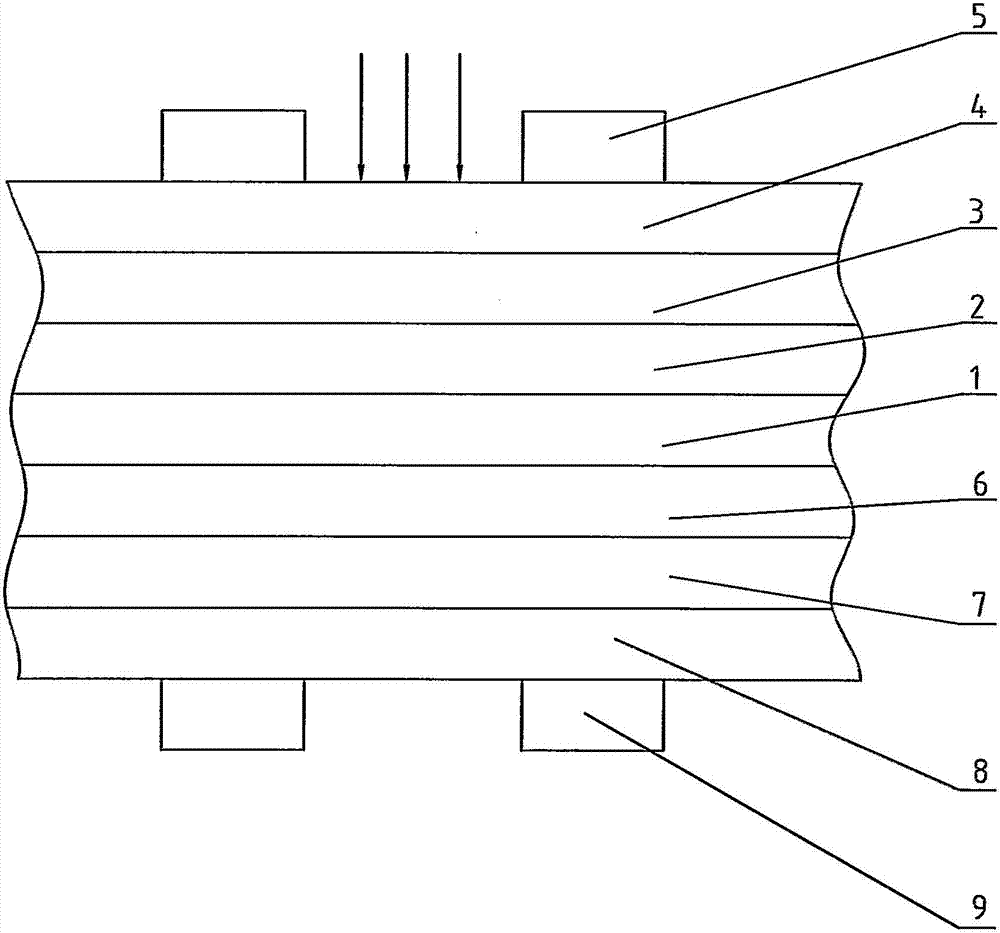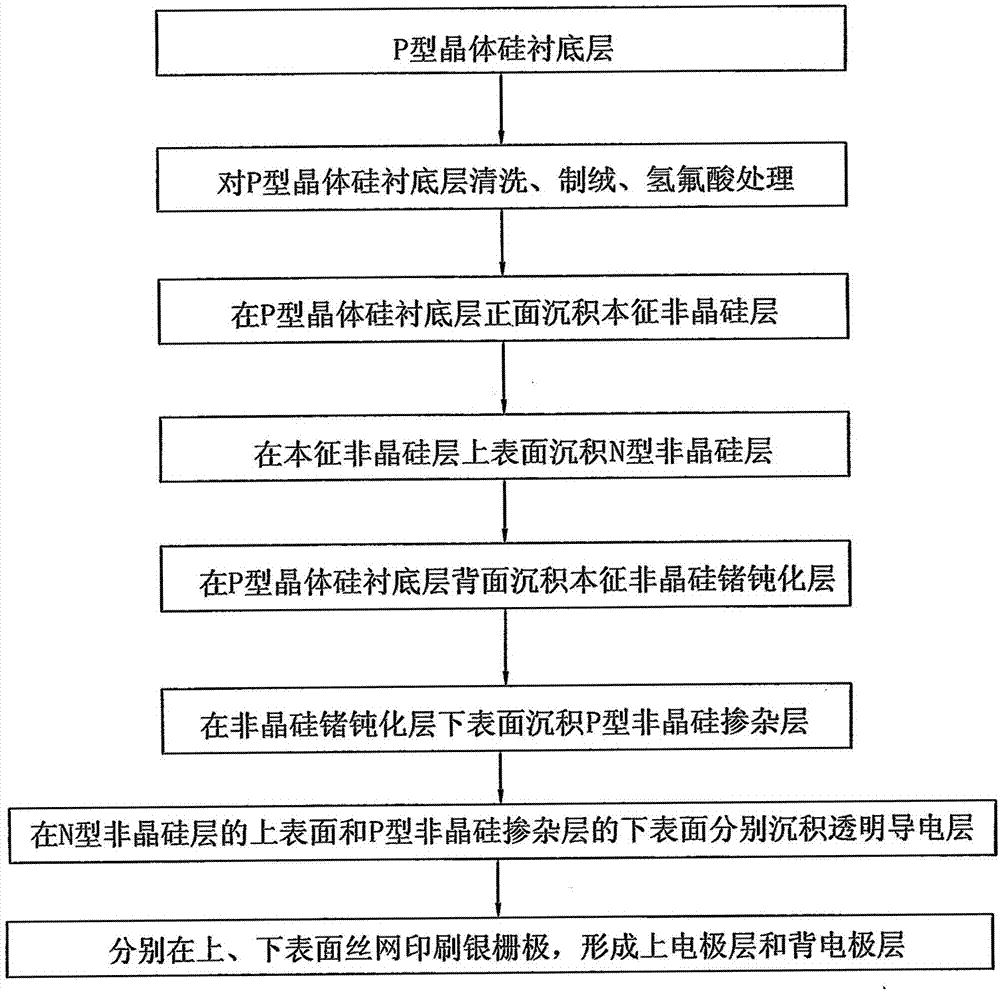P-type silicon substrate heterojunction cell
A heterojunction cell and silicon substrate technology, applied in the field of solar cells, can solve the problems of reduced light energy conversion efficiency, ineffective carrier collection, reduced transition tunneling probability, etc., and achieves increased processes, increased costs, and increased The effect of collection and utilization
- Summary
- Abstract
- Description
- Claims
- Application Information
AI Technical Summary
Problems solved by technology
Method used
Image
Examples
Embodiment Construction
[0019] In order to make the content of the present invention easier to understand clearly, the present invention will be described in further detail below according to specific embodiments in conjunction with the accompanying drawings,
[0020] Such as figure 1 As shown, a P-type silicon substrate heterojunction cell comprises a P-type crystalline silicon substrate layer 1, an intrinsic amorphous silicon layer 2, an N-type amorphous silicon layer 3, and a P-type amorphous silicon layer. Doped layer 7, a first transparent conductive layer 4, an upper electrode layer 5, an intrinsic amorphous silicon germanium passivation layer 6, a second transparent conductive layer 8 and a back electrode layer 9, P-type crystalline silicon lining The bottom layer 1 has a front side and a back side, the intrinsic amorphous silicon layer 2 is deposited on the front side of the P-type crystalline silicon substrate layer 1; the N-type amorphous silicon layer 3 is deposited on the upper surface of...
PUM
| Property | Measurement | Unit |
|---|---|---|
| thickness | aaaaa | aaaaa |
| thickness | aaaaa | aaaaa |
| thickness | aaaaa | aaaaa |
Abstract
Description
Claims
Application Information
 Login to View More
Login to View More - R&D
- Intellectual Property
- Life Sciences
- Materials
- Tech Scout
- Unparalleled Data Quality
- Higher Quality Content
- 60% Fewer Hallucinations
Browse by: Latest US Patents, China's latest patents, Technical Efficacy Thesaurus, Application Domain, Technology Topic, Popular Technical Reports.
© 2025 PatSnap. All rights reserved.Legal|Privacy policy|Modern Slavery Act Transparency Statement|Sitemap|About US| Contact US: help@patsnap.com


